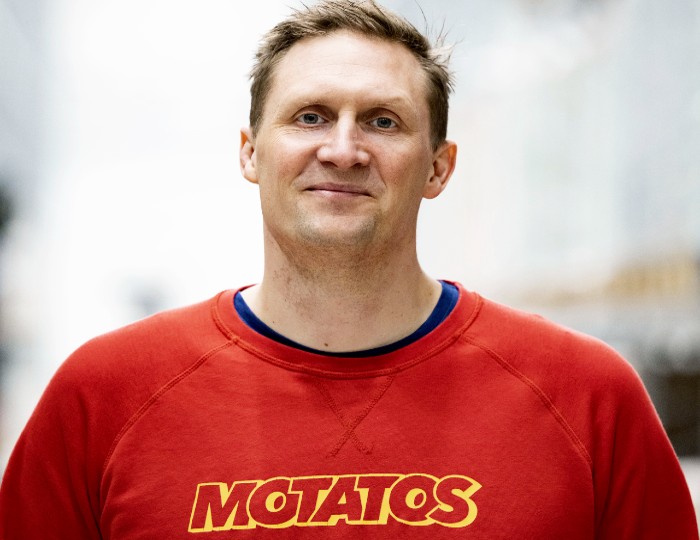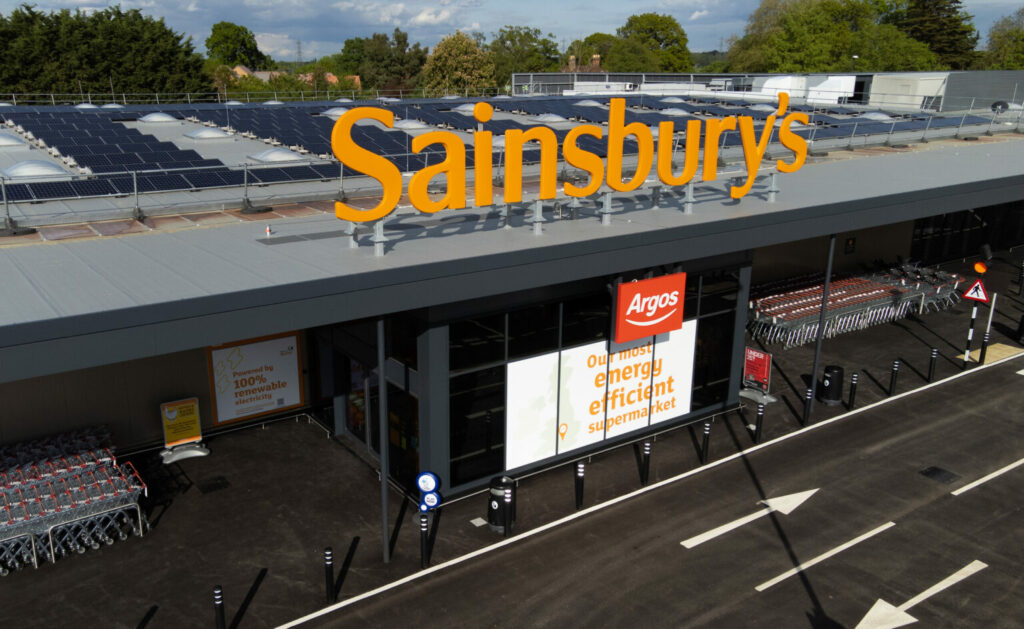Swedish online discounter Motatos’ launch in the UK in June was perfectly timed as the nation faces the biggest cost-of-living crisis in decades and people are having to choose between eating and heating their homes.
Inevitably, the launch has proven successful with Motatos founder Karl Andersson saying he couldn’t have expected a better response and that “everything is going in the right direction”.
“Customers are really happy, we have a really good connection with our suppliers, and from a sales perspective, we managed to find new customers,” says Andersson.
Accessorised with peace signs and revolution slogans, Motatos’ online store offers something a little bit different than many other grocers. It even calls itself “a different kind of food store”.
“Just because we’re cheap doesn’t mean we’re selling shady food,” Karl Andersson, founder, Motatos
Motatos was conceived to kill two birds with one stone, by both preventing the wastage of food and delivering it at a discounted price.
The new online rival to Aldi and Lidl, offers customers up to 60% off branded goods and helps to tackle food waste
“We’re bringing something new to the game. We’re doing something good for the environment and we’re selling really cheap food,” Andersson says.
However, he insists its food is good quality: “Just because we’re cheap doesn’t mean we’re selling shady food.”
Motatos ensures it keeps costs down by tracking pricing and having the right offer.
“That is a very important part of our job,” Andersson says. “That goes into the secret sauce that I can’t talk too much about.”
What is known is Motatos’ unique buying model. It snaps up products from food producers and wholesalers that would otherwise be thrown away due to overproduction, faulty packaging, seasonal trends, and short or sometimes passed best-before dates.
This means that it prevent perfectly good products from ending up in landfill and consumers can buy groceries at a discount.
Andersson explains that this comes with the challenge of gaining consumers’ trust. Motatos does this by selling household brands that people know and trust, including Ariel, Cadbury, Heinz, Johnson’s, Kellogg’s, Nescafe and Walkers.
This is dramatically different to rivals such as Aldi and Lidl that mainly focus on own brand.
“We’re new to the market so the brands we sell need to be something that consumers recognise and trust,” he says.
Another way that Motatos seeks to gain trust is by offering new things each day on its website.
“Every day when you go on to the site, we will have something really exciting. So it’ll be a list of our top trending products or our latest hero deal – which offers consumers up to 70% off,” Andersson tells Retail Gazette.
UK expansion
Motatos has been operating in Sweden since 2014 but had only expanded to Denmark, Finland and Germany until its UK launch.
Andersson says the move into the UK is crucial as it proves the business could go global.
“We founded this company in the Nordic regions and launching in the UK is a way to show that this is not a Nordic business model, this is a European business model,” he explains.
“The next step for us is to show that this could be a global business model.”
With Motatos recently raising £33 million to boost its UK expansion plans, Andersson says there will be a strong continual focus on the UK.
“We are very much focusing on trying to prove the profitability of our business model.”
The etailer is vying to raise its brand awareness and grow its customer base and is today launching a pop-up store at Boxpark in Shoreditch, London to further those aims.
Motatos is working withfood media platform Mob to serve meals for the public in return for food donations.
For all the stock donated, Motatos will match it with its own stock as part of the donation.
Andersson admits that it’s a “fun and crazy marketing initiative” but shows Motatos’ vision to co-create the future of food.
“We are trying to change the way we look at waste and food waste in particular. We think that food being produced should be eaten or thrown away. The bigger we grow, the more we can support,” he says.
If Motatos can both reduce waste and provide cheaper prices for those that need it right now, it could become a force to be reckoned with in the UK.


















